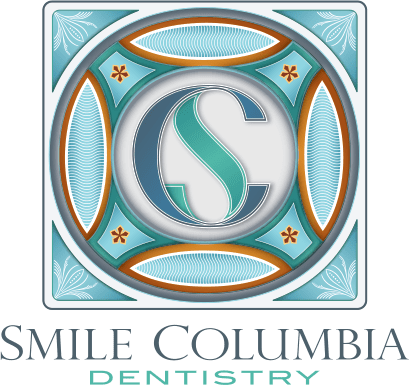Did you know that ringing in the ears—referred to as tinnitus—is often linked to problems with your jaw? Many people don’t realize that the jaw, neck, head, and ears are interconnected, forming a complex system that supports everyday functions like eating, talking, and moving. When something disrupts this harmony, such as Temporomandibular Joint Disorders (TMD), it can lead to symptoms that affect not only your jaw but also your ears, neck, and even your ability to hear clearly.
If you’ve been experiencing jaw pain, difficulty with jaw movement, or persistent ringing in your ears, it could be a sign of TMD. At our Columbia, SC office, Dr. Adam Hahn provides advanced TMJ treatment options to address these issues and help you find relief.
How Tinnitus and Jaw Movement Are Related
Studies reveal a strong connection between jaw movement and tinnitus. In fact, as many as 80% of people with tinnitus can alter the sound they hear by moving their jaw, neck, or head. Actions like clenching your teeth or shifting your jaw to one side often worsen tinnitus, while certain jaw movements may reduce the ringing for some individuals.
This connection arises because the jaw joints (or temporomandibular joints) are located close to the inner ear structures. When these joints are misaligned or under stress, they can irritate surrounding nerves and muscles, leading to tinnitus symptoms. Difficulty opening and closing the mouth or jaw pain often accompanies this condition, further complicating daily activities.
Common Tinnitus Symptoms
Tinnitus affects approximately one in five people, but the condition manifests differently for each individual. While the hallmark symptom is a persistent ringing sound, many patients report additional hearing issues, such as:
- Buzzing
- Hissing
- Whistling
- Roaring
- Chirping
The intensity and frequency of these sounds can vary, with some experiencing mild discomfort and others finding it severely disruptive. If your tinnitus is accompanied by jaw pain or restricted jaw movement, it’s essential to seek a comprehensive evaluation.
The Role of Jaw Joints and Muscles
The temporomandibular joints and surrounding jaw muscles play a pivotal role in maintaining proper jaw function. When these areas are strained—often due to teeth grinding (bruxism), stress, or injury—they can lead to misalignment and inflammation, which in turn may exacerbate tinnitus symptoms.
Our treatment approach focuses on relieving stress in the jaw joints and muscles, promoting muscle relaxation, and improving jaw movement. This helps reduce the strain on surrounding nerves and structures, addressing the root cause of your symptoms.
Comprehensive Tinnitus Treatment Options
If you’re suffering from tinnitus and suspect a connection to TMD, our team can develop a personalized treatment plan to address both conditions. Here’s what your treatment plan might include:
1. Behavior and Lifestyle Modifications
Small changes to your daily routine can significantly improve your symptoms and overall well-being. We recommend the following adjustments:
- Optimize your sleep position: Elevating your head with supportive pillows or using a memory foam mattress can reduce jaw strain. Proper sleep posture can also help prevent further jaw misalignment.
- Reduce stimulants: Avoid caffeine, alcohol, and acidic foods before bedtime. These can increase muscle tension and exacerbate tinnitus and jaw pain.
- Stress reduction techniques: Managing stress is key to reducing jaw tension and grinding. Consider incorporating relaxation techniques such as deep breathing, meditation, or progressive muscle relaxation into your routine. Regular exercise can also help reduce overall body tension.
2. TENS Therapy
Transcutaneous Electric Nerve Stimulation (TENS) is a highly effective, non-invasive treatment option for jaw pain and tinnitus. This therapy uses gentle electrical pulses to target affected areas, promoting muscle relaxation and reducing discomfort. TENS therapy is ideal for alleviating jaw strain and improving mobility in the jaw joints. Many patients experience immediate relief after just one session, making it a quick and accessible solution to manage TMD-related symptoms.
3. Oral Appliances
Oral appliances, such as nightguards or mouthguards, are essential tools for managing bruxism (teeth grinding) and jaw clenching, both of which contribute to jaw pain and tinnitus. These devices work by gently repositioning the jaw to alleviate stress on the temporomandibular joints (TMJ) and surrounding muscles. Oral appliances help prevent teeth grinding, thereby improving jaw movement and reducing discomfort. They also promote better sleep quality by preventing nighttime jaw clenching.
4. Physical Therapy
Incorporating physical therapy into your treatment plan can significantly enhance jaw function and reduce muscle tightness. Targeted exercises and stretches help improve the range of motion in the jaw, while also addressing any underlying muscular tension that may contribute to tinnitus. Physical therapy for TMD patients focuses on improving jaw alignment, relieving muscle spasms, and restoring mobility, which can result in both short- and long-term relief from symptoms.
5. Bite Reconstruction
When jaw misalignment is the root cause of TMD and tinnitus symptoms, bite reconstruction may be necessary. This restorative approach uses both cosmetic dental procedures and orthodontic treatments to correct bite imbalances, which can reduce strain on the jaw joints and alleviate associated pain. Bite reconstruction can restore balance to your bite, improving both jaw function and your ability to move the jaw without pain or discomfort.
6. Non-Invasive First Approach
Surgical intervention is typically a last resort in the treatment of TMD and tinnitus. At our practice, we prioritize non-invasive treatments that provide significant relief without the need for surgery. Most patients experience substantial improvement through our minimally invasive techniques, such as TENS therapy, oral appliances, and physical therapy. By addressing the root cause of symptoms early on, we help you avoid more invasive procedures and achieve long-lasting relief.
Advanced TMJ and Tinnitus Treatment in Columbia, SC
Our Columbia, SC office is equipped with cutting-edge technology to diagnose and treat TMD and its associated symptoms, including tinnitus. By addressing the underlying causes of your jaw pain and tinnitus, we can create a treatment plan tailored to your needs and goals.
Many patients have achieved long-lasting relief through our comprehensive approach, which focuses on muscle relaxation, proper jaw alignment, and improving overall jaw function.
Why It’s Important to Seek Treatment
Ignoring TMJ-related symptoms like jaw pain and tinnitus can lead to worsening issues over time, including potential hearing loss. Early intervention is key to preventing further complications and improving your quality of life.
If you’ve seen other healthcare providers without success, it’s time to explore a dental approach to your symptoms. Dr. Adam Hahn and our team have the experience and tools needed to address the complex relationship between jaw movement, tinnitus, and overall oral health.
Schedule Your TMJ and Tinnitus Evaluation Today
Don’t let jaw pain and tinnitus disrupt your life any longer. Contact our Columbia, SC, dental office today to schedule a consultation with Dr. Adam Hahn. We’ll perform a thorough evaluation, identify the root cause of your symptoms, and create a personalized treatment plan to help you find relief.
Relief is just a phone call away, call us at (803) 781-9090!





